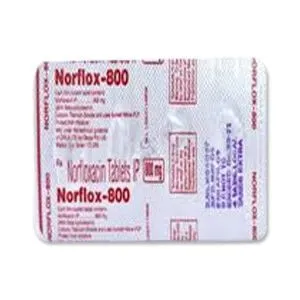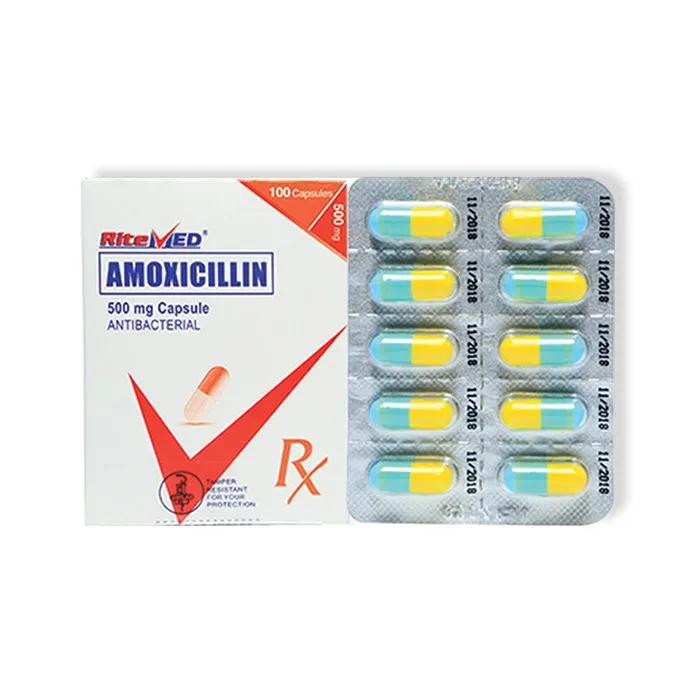Description
Althrocin 250 MG (Erythromycin 250 mg)
Althrocin 250 mg is an antibiotic medication containing Erythromycin, used to treat various bacterial infections. It works by inhibiting bacterial growth. It is prescribed by healthcare professionals to address infections in the respiratory tract, skin, and soft tissues, among others. Follow your healthcare provider's instructions for optimal results.
What is the USA equivalent brand to Althrocin 250 mg?
The U.S. equivalent brand to Althrocin 250 mg (containing Erythromycin) is often known as "Erythromycin" and is available in various formulations to treat bacterial infections.
What is Althrocin 250 mg?
Althrocin 250 mg is a medication containing Erythromycin, a macrolide antibiotic used to treat a wide range of bacterial infections. It works by inhibiting the growth and multiplication of bacteria. Althrocin is prescribed by healthcare professionals to combat infections in the respiratory tract, skin, soft tissues, and other body parts. It is effective against conditions such as bronchitis, pneumonia, and skin infections. It is crucial to follow your healthcare provider's instructions for the correct dosage and duration to ensure successful treatment and minimize antibiotic resistance.
Who manufactures Althrocin 250 mg?
Althrocin 250 mg is manufactured by Alembic, a reputable pharmaceutical company known for producing high-quality medications and healthcare products.
Althrocin 250 mg uses
Althrocin 250 mg, containing Erythromycin, is prescribed to treat various bacterial infections. It is effective against respiratory tract infections, skin and soft tissue infections, ear and throat infections, and more. Healthcare professionals recommend it for conditions caused by susceptible bacteria to ensure effective treatment and recovery.
Strengths
Althrocin 250 mg is available in one strength, which contains 250 milligrams of the active ingredient Erythromycin per tablet, providing an effective dosage for treating bacterial infections.
How does Erythromycin 250 mg work?
Erythromycin 250 mg, the active ingredient in Althrocin, is a macrolide antibiotic that functions by inhibiting bacterial protein synthesis. It binds to the ribosomes within bacterial cells, preventing the formation of new proteins essential for their growth and reproduction. This action ultimately halts the spread and multiplication of bacteria. As a result, Erythromycin effectively combats various bacterial infections, allowing the body's natural defenses to eliminate the remaining bacteria and promote recovery.
How to take Althrocin 250 mg?
To take Althrocin 250 mg (Erythromycin), follow your healthcare provider's instructions. Typically, it is taken orally with or without food. Swallow the tablet whole with a glass of water. Do not crush or chew it. Take the prescribed dosage at regular intervals as directed, even if symptoms improve before completing the course. Completing the full course is essential to ensure the infection is fully treated and prevent antibiotic resistance. Consult your healthcare provider for specific guidance.
Things should be kept in mind while using Althrocin 250 mg(Erythromycin)
While using Althrocin 250 mg (Erythromycin), consider the following:
Follow your healthcare provider's prescribed dosage and complete the full course.
Take it with or without food, as instructed.
Avoid consuming antacids, as they may interfere with absorption.
Inform your healthcare provider of any allergies, medical conditions, or other medications you're taking.
Do not crush or chew the tablet; swallow it whole.
Finish the entire course, even if symptoms improve.
Store at room temperature, away from moisture and heat.
Keep out of reach of children.
When should avoid the use of Althrocin 250 mg?
Avoid using Althrocin 250 mg (Erythromycin) in the following situations:
Allergies: If you are allergic to Erythromycin or any macrolide antibiotics, as it may trigger an allergic reaction.
Concomitant Medications: When taking medications that interact negatively with Erythromycin; consult your healthcare provider for guidance.
Liver Issues: If you have severe liver impairment, as Erythromycin is metabolized by the liver.
Myasthenia Gravis: In cases of Myasthenia Gravis, as Erythromycin may exacerbate muscle weakness.
Pregnancy and Breastfeeding: Use only if clearly needed and under healthcare supervision during pregnancy and breastfeeding.
Doses
The typical dosage of Althrocin 250 mg (Erythromycin) varies depending on the type and severity of the infection. It is generally taken every 6 to 12 hours, with or without food. The specific dosage and duration will be determined by your healthcare provider based on your condition. Follow their instructions carefully.
Missed Dose
If you miss a dose of Althrocin 250 mg (Erythromycin), take it as soon as you remember. However, if it's close to the next scheduled dose, skip the missed one. Do not double the dose.
Overdose
In case of an overdose of Althrocin 250 mg (Erythromycin), seek immediate medical attention or contact a poison control center. Overdose symptoms may include nausea, vomiting, abdominal pain, and diarrhea.
Side Effects Of Althrocin 250 mg
Common side effects of Althrocin 250 mg (Erythromycin) may include nausea, vomiting, diarrhea, stomach pain, and headache. Less common side effects can involve skin rashes, itching, and allergic reactions. If you experience severe or persistent side effects, inform your healthcare provider. In rare cases, Erythromycin may lead to serious side effects like liver problems or irregular heartbeat. Seek immediate medical attention if you notice symptoms like jaundice, dark urine, or an unusually fast or irregular heartbeat.
Drug Interactions
Erythromycin, the active ingredient in Althrocin 250 mg, may interact with various medications. It can increase the concentration of drugs like theophylline, carbamazepine, and digoxin in the bloodstream, potentially leading to adverse effects. It may also affect the metabolism of medications processed by the liver enzymes CYP3A4 and CYP3A5. Inform your healthcare provider about all medications you are taking to prevent potentially harmful drug interactions. They can adjust your treatment plan accordingly to ensure the safety and efficacy of the drugs used.
Warning And Precaution
Before using Althrocin 250 mg (Erythromycin), consider the following warnings and precautions:
Allergic Reactions: If you experience signs of an allergic reaction (rash, itching, swelling, severe dizziness, or difficulty breathing), seek immediate medical attention.
Liver Function: Regularly monitor liver function if you have a history of liver disease, as Erythromycin may affect liver enzymes.
Heart Issues: Use with caution if you have heart conditions, as it can lead to irregular heart rhythms.
Pregnancy and Breastfeeding: Use during pregnancy and breastfeeding should be based on the healthcare provider's evaluation of benefits versus risks.
Myasthenia Gravis: Use cautiously in patients with Myasthenia Gravis, as it may worsen muscle weakness.
Antibiotic Resistance: Overuse can lead to antibiotic resistance, so follow prescribed dosages and complete the full course.
Always consult your healthcare provider for personalized guidance and recommendations.
Storage
Store Althrocin 250 mg (Erythromycin) at room temperature, away from moisture and heat. Keep it out of the reach of children and pets. Do not use the medication past its expiration date.
FAQs
Can I take Althrocin with food?
Yes, Althrocin can be taken with or without food, but following your healthcare provider's instructions is essential.
How long should I take Althrocin for a bacterial infection?
The duration depends on the type and severity of the infection. Always complete the full course as prescribed.
What should I do if I experience stomach upset while taking Althrocin?
Contact your healthcare provider; they may adjust your dosage or recommend taking it with food.
Can I drink alcohol while on Althrocin?
It's best to avoid alcohol while taking antibiotics, as it may reduce their effectiveness and cause side effects.
Is Althrocin safe during pregnancy?
It should only be used during pregnancy if the benefits outweigh the risks, and under healthcare supervision.
Conclusion
In conclusion, Althrocin 250 mg (Erythromycin) is a valuable antibiotic medication effective against various bacterial infections. While it offers substantial benefits, it should be used cautiously, adhering to prescribed dosages and precautions. Regular monitoring, especially for individuals with specific medical conditions, is crucial. Consulting a healthcare provider for personalized guidance ensures safe and effective treatment. Proper storage and responsible use are essential to maintain the medication's potency and efficacy.








.webp)
